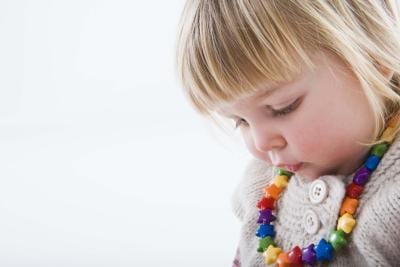Depression is typically thought of as a problem that teens and adults have, but preschoolers can experience depression too. Studies have shown that chronic depression often begins in childhood. “One of the most important mental-health discoveries of the past 10 to 20 years has been that chronic mental illnesses are predominantly illnesses of the young,” said Daniel Pine, of the National Institute of Mental Health, during an interview with “The New York Times.” Preschoolers suffering from true depression can be helped by receiving early help and learning to cope with their unhealthy thinking patterns.
Considerations
Children go through many phrases. They are constantly growing and changing so the problems they experience one day may not exist the next. All children have a bad day from time to time. When a depressed mood begins to interfere with appropriate development, both socially and emotionally, parents need to consider whether a preschooler is suffering from depression.
Symptoms of Depression
Children can easily become stressed over events in their every day lives, just as their parents can. When a preschooler’s behaviors outlast any temporary event, such as the birth of a sibling or a move, then it may be possible that he is experiencing a depressive episode. Parents should watch for changes in eating or sleeping habits, self-destructive behavior, frequent tearfulness and social withdrawal. Parents should look at the overall picture to determine if a child’s behavior can be explained by anything else that is going on in his life at the time.
Treatment of Depression
Many parents are hesitant to put a preschooler on medication to treat depression, and doctors are often hesitant to jump to medication in young children. Research is currently being done to determine the effects of using medication to treat depression in children under 6 years of age. Cognitive behavioral therapy (CBT) has been shown to be quite effective in children, because it teaches them to change unhealthy thinking patterns and gives them the skills they will need throughout life. Parents of depressed preschoolers may find it useful to participate in a support group or attend counseling sessions to learn how to help their preschooler and how to cope with the stress of having a child with a mood disorder.
Labeling
Labeling a preschooler as being depressed is something that many parents and professionals are undecided about. Many mental health professionals prefer to label preschoolers as having a mood disorder not otherwise specified (N.O.S.) to allow for the possibility that the preschooler may grow out of the depressive symptoms. Labeling preschool depression as being a mood disorder N.O.S. prevents a preschooler from being stuck with the label of being depressed, and the stigma that goes along with that, until the child is older and it can be determined how accurate a diagnoses of depression is.
Possibly Inherited
There is some evidence that depression in young children can be hereditary. Children of depressed parents have a much higher likelihood of developing depression or another mood disorder themselves. This may be partially due to the fact that depressed mothers are often less responsive to their children, and kids being the sponges that they are, tend to pick up on that and may mimic the behavior. While there may be a link between depressed parents and depressed preschoolers, many parents experience episodes of depression without passing the tendency onto their children.





